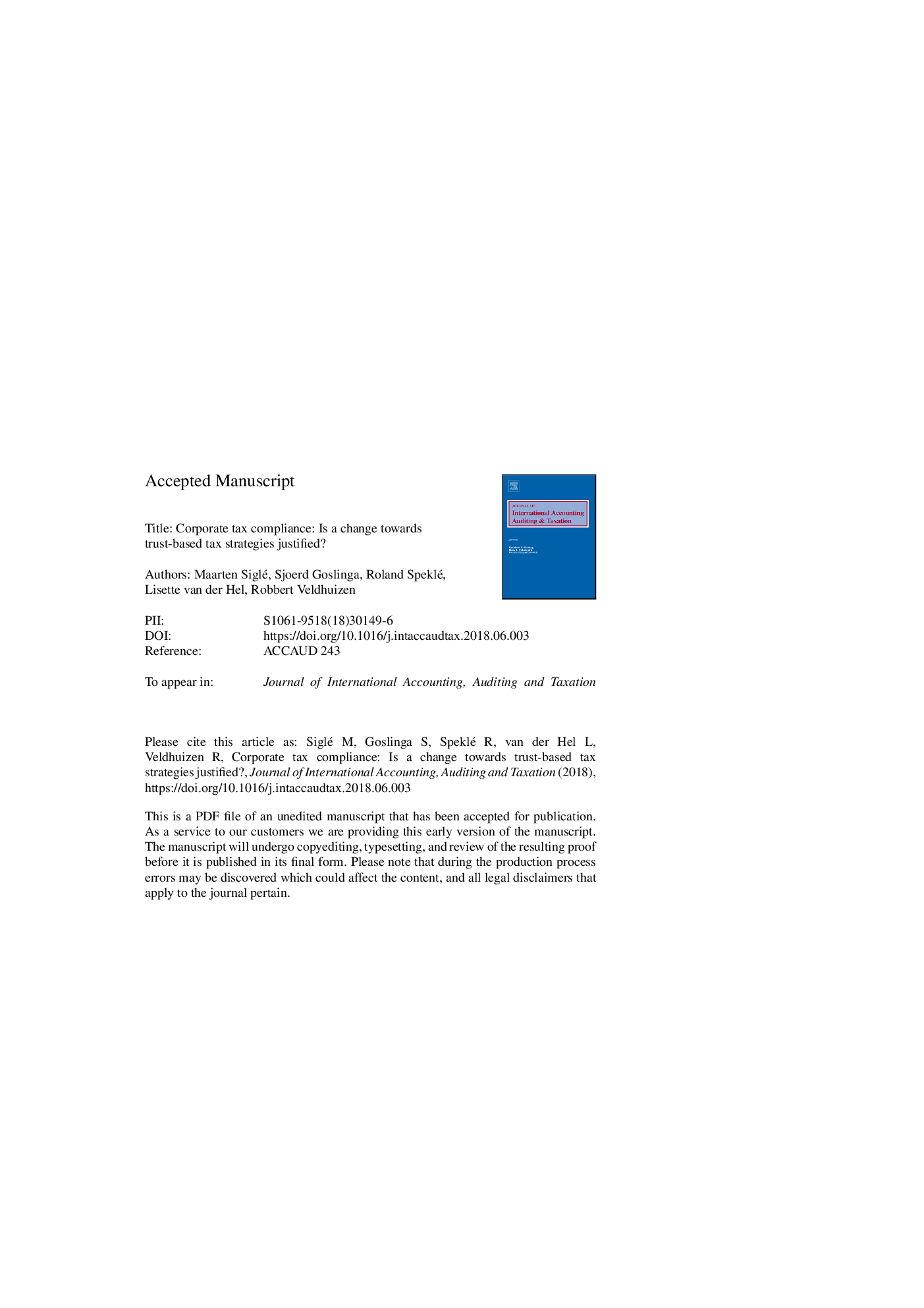| Article ID | Journal | Published Year | Pages | File Type |
|---|---|---|---|---|
| 10226843 | Journal of International Accounting, Auditing and Taxation | 2018 | 40 Pages |
Abstract
Both the power of tax authorities to detect and punish non-compliance and the perceived trust in the tax authorities are generally assumed to affect tax compliance. In the present study, we build from the Slippery Slope Framework (SSF) to examine the role of trust and power in corporate tax compliance. Survey data collected among representatives of large (profit and not-for-profit) organisations in the Netherlands (nâ¯=â¯271) show a positive relationship between trust and tax compliance. Power appears to be negatively associated with voluntary compliance, but we find no significant relationship between power and enforced compliance. Furthermore, we find a moderating effect of power on the relationship between trust and voluntary compliance: high power appears to undermine the positive effect of trust on self-reported voluntary compliance. Results also indicate that enforced compliance is not related to self-reported tax aggressiveness, but we do observe a positive association between enforced compliance and self-reported tax minimization. This association, however, is not significant if we exclude the not-for-profit organisations from the analysis. Overall, these results can be interpreted as an encouragement for the worldwide development of trust-based regulatory activities (e.g. cooperative compliance strategies). Implications for future research are discussed.
Keywords
Related Topics
Social Sciences and Humanities
Business, Management and Accounting
Accounting
Authors
Maarten Siglé, Sjoerd Goslinga, Roland Speklé, Lisette van der Hel, Robbert Veldhuizen,
